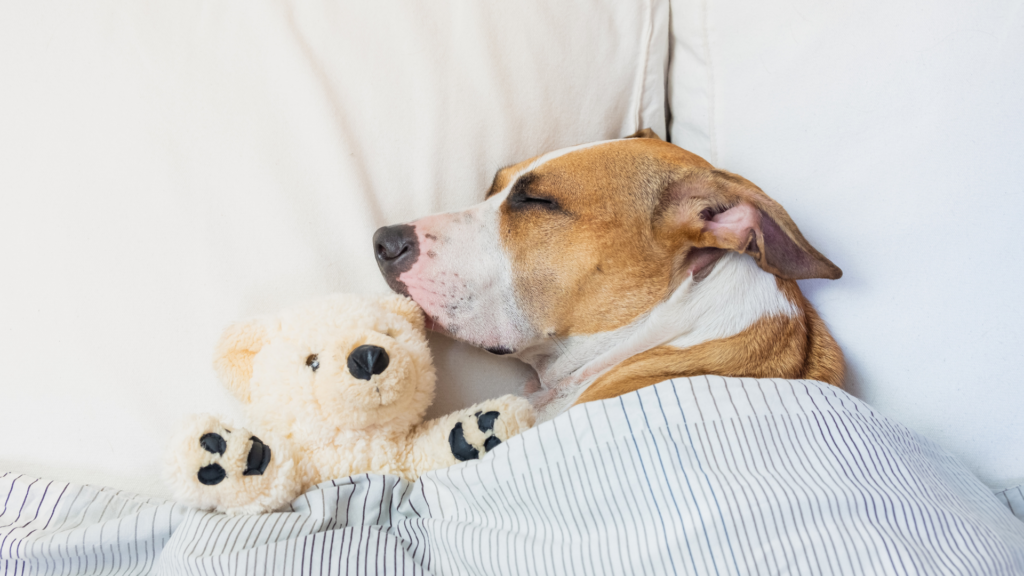It’s raining, it’s pouring, and your dog just won’t stop snoring?!
While the sound of snoring can be a bit disruptive to an otherwise quiet home, it’s rarely something to worry about. That’s because dogs, just like people, can snore for a variety of reasons – from allergies and environmental causes, to pure sleepiness and breed traits. In fact, some dogs are just natural snorers.
However, sometimes a snoring habit can be an indication of an underlying health issue. Read on for an explanation on why some dogs snore, and when snoring could be a cause for concern.
Why Some Dogs Snore
Just like humans, not all dogs snore. But if they do, the main cause of their snoring habit is likely caused by the airflow in their nasal passageways or throat becoming restricted. This is perfectly normal, and can be triggered by something as simple as your dog sleeping on their back, which causes their tongue to drop towards the back of their throat, essentially blocking their breath from moving freely throughout their airways.
It’s also important to note that certain breeds are prone to snoring. Brachycephalic – or “short-headed” breeds – are the most susceptible to snoring. These breeds include Bulldogs, Boxers, Pugs, Shih-Tzus; any breed with a scrunched in snout.
Because brachycephalic breeds have less room in their nasal cavities, it can be hard for them to breathe, especially while sleeping. If you have a brachycephalic breed, there isn’t really any remedy to help limit their snoring since it’s genetic, so you may want to purchase some earplugs if the sound bothers you!
When Snoring Should Be Checked By a Veterinarian
While snoring is, for the most part, a harmless habit, there are times when it should be a cause for concern. If you notice that your dog is snoring while also breathing shallowly, or even stops breathing altogether, they may have sleep apnea, and it’s important to take them to the vet to get checked out.
Additionally, similar to a common cold in humans, a case of rhinitis can lead to snoring. If you notice your dog is snoring while also experiencing a stuffy or runny nose, sneezing, and labored breathing, it’s likely their mucus membranes are inflamed. Thankfully, rhinitis can be cured with an antibiotic, so be sure to consult with your veterinarian if you think your dog may be affected.
How to Reduce Your Dog’s Snoring
If your pup’s snoring isn’t accompanied by additional symptoms that could indicate a health issue (as we listed above), there are some at-home remedies you can try to alleviate the noisy sleeping habit.
To start, try putting an air humidifier near your pup’s bed or sleeping area to add moisture to the air, and create a more comfortable breathing environment. This will prevent your pup’s nose, throat, and airways from getting too dry, which can lead to snoring.
You can also try swapping your dog’s bedding to a round bed, since the curled up sleeping position will expand your dog’s air passages, and even add a pillow to prop up your pup’s head while they sleep. Both will keep your dog’s airways less restricted or prone to snoring.
By providing your dog with a clean environment, plenty of humid air, and a pillow to prop up their head, you should notice their snoring problem alleviated almost immediately. If your dog continues to snore, and you notice additional symptoms like a runny nose, sneezing, or exhibiting common symptoms of sleep apnea, it’s best to contact your veterinarian to ensure your pup is comfortable and in good health.


